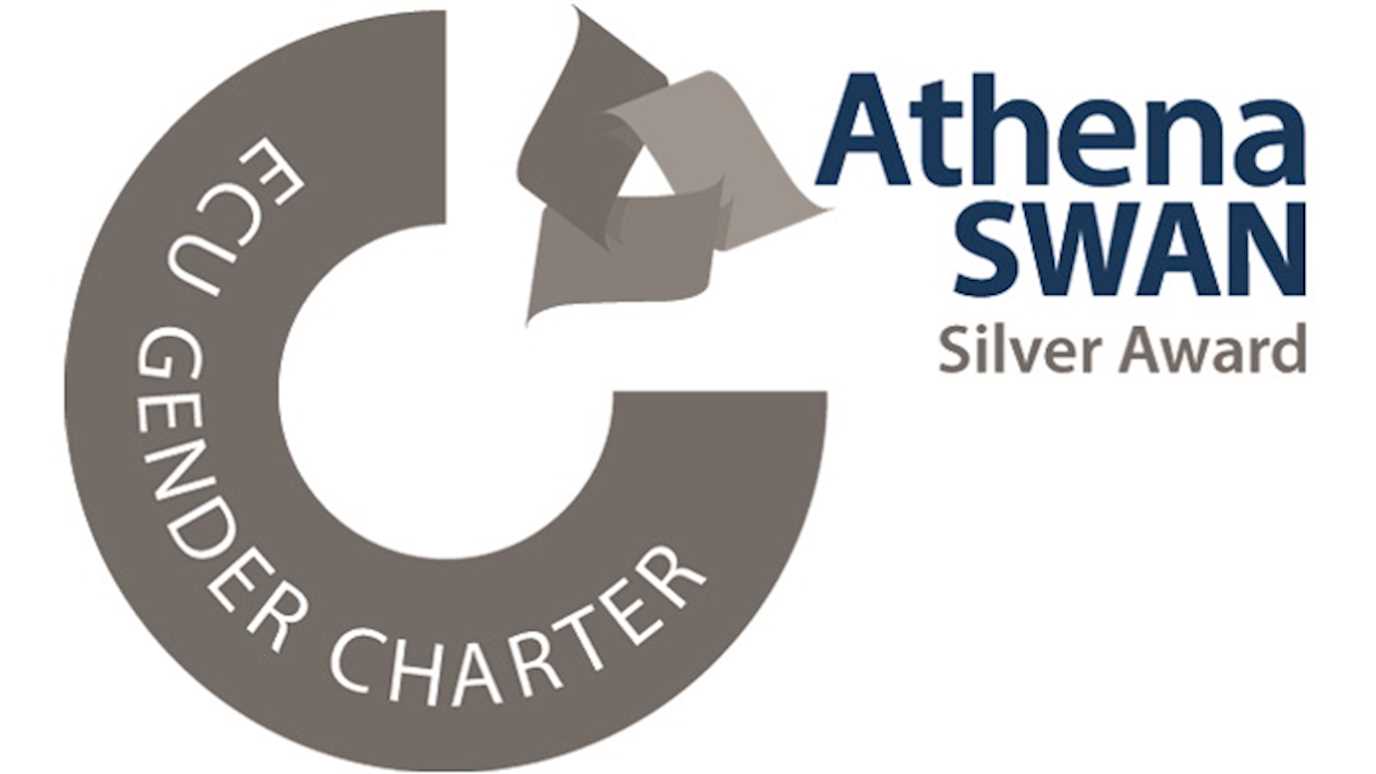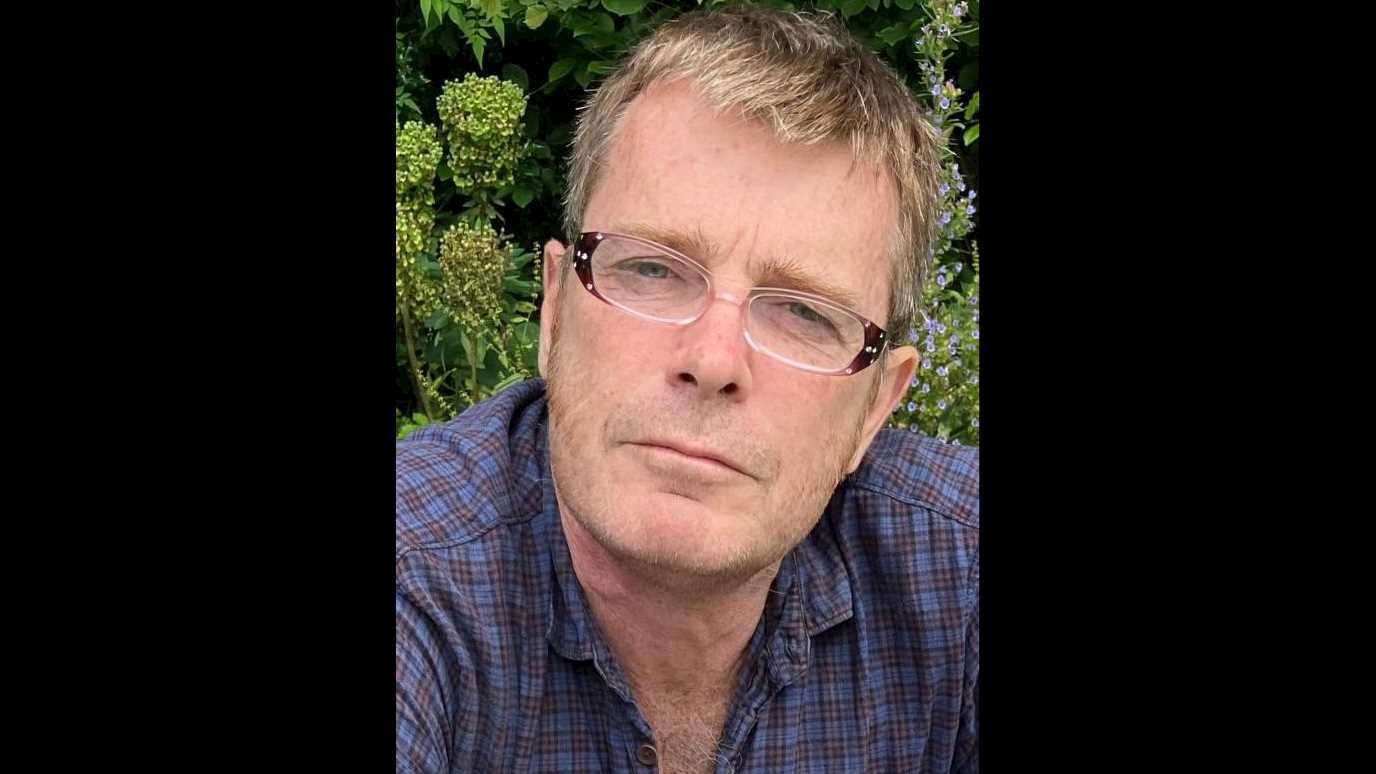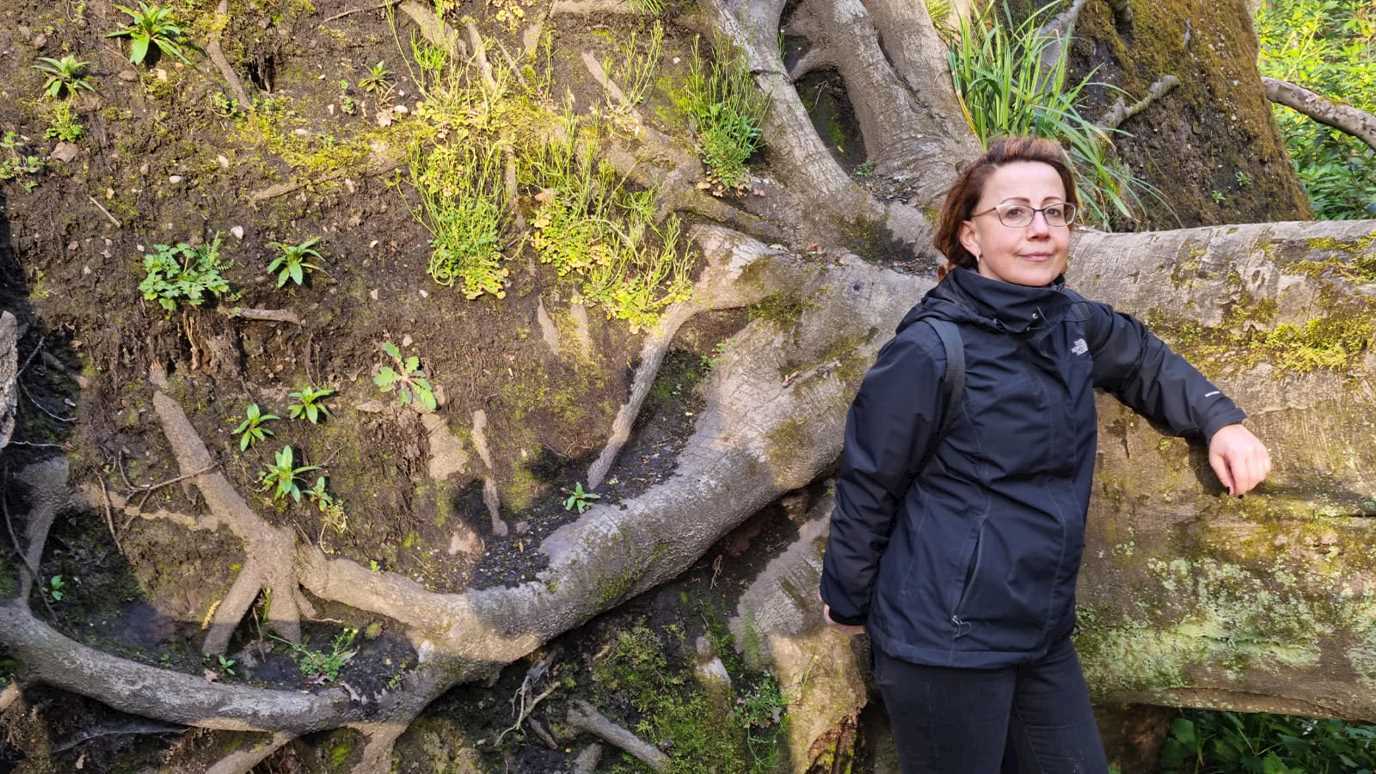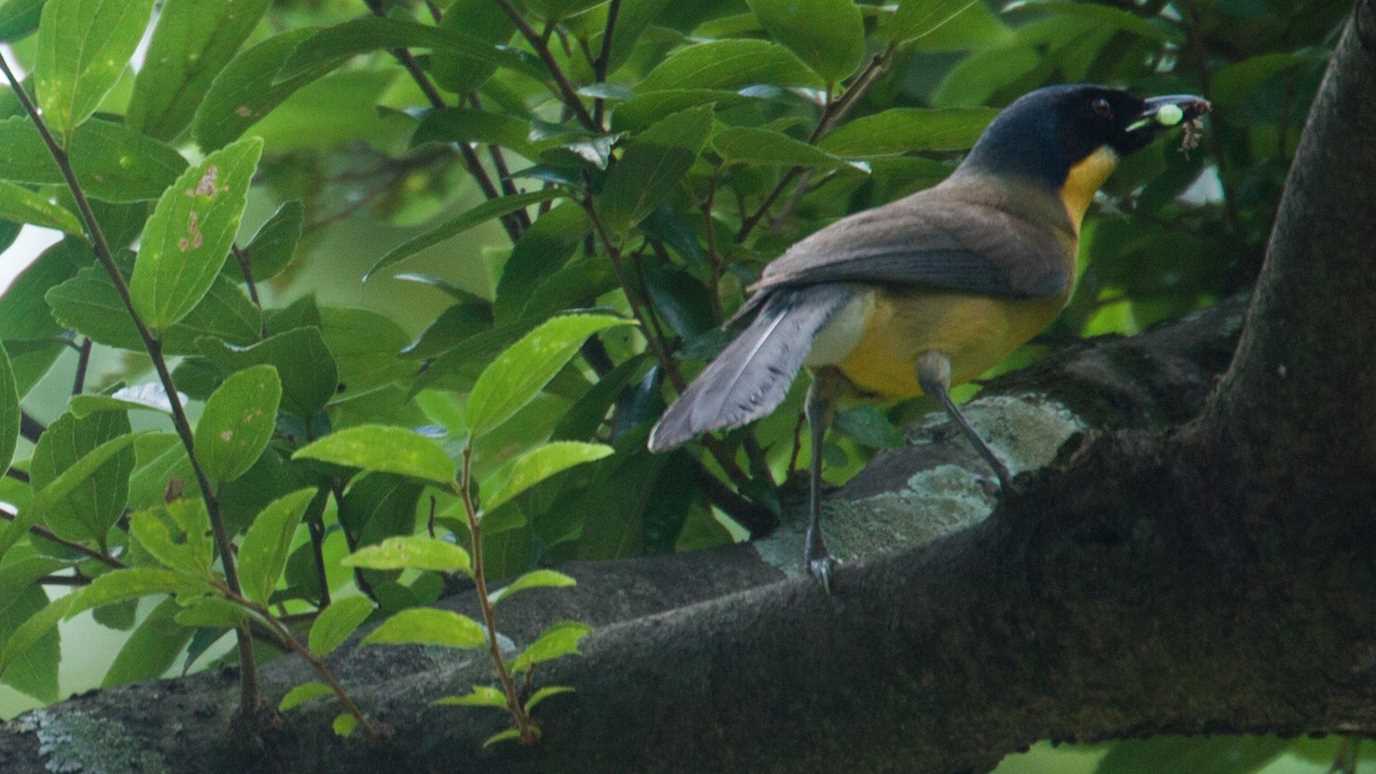Dr Steve Portugal, Senior Lecturer in the School of Biological Sciences at Royal Holloway, talked with Chris Packham to gather insight and advice for Biologists considering a future in Science communications.

L-R Chris Packham and Steve Portugal during filming for the BBC in one of Royal Holloway's Biological Sciences teaching labs
A degree within the biological sciences can lead to a wide variety of careers. One such career is science communication, and science media. Chris Packham (CP) has been a regular fixture on our TVs for over 30 years, starting back in 1986 with the Really Wild Show, and seen more recently with Springwatch, The Wonder of Animals, and Nature’s Weirdest Events. With a background in biology, including a BSc in zoology, Chris seemed the ideal person to chat to about how a biology degree can lead to a career in science communication, and science media.
SP: A classic question I always find myself asking nature lovers is, whether they feel their love for the natural world was a result of nature or nurture?
CP: My parents were very keen and supportive of education in general, with both having quite different interests; my mother was into the arts, while my father was fascinated by military history. There are actually very few young people who are not interested in the natural world. When I was young I would plant seeds and watch them germinate, keep caterpillars and watch them pupate etc. It not only stimulated my interest in the natural world, but it made me understand the value of life, and how to deal with death too. My parents were both very supportive of my interests in natural history.
SP: At this point it seems daft to ask why you decided to embark on a BSc in Zoology, but I shall anyway…..
CP: From the age of 13, it was clear to me I wanted some sort of career in zoology, working with animals. I had already begun quite detailed habitat and animal surveys of the local area I lived in, and this had brought me into contact both with academics and local naturalists.
This early interaction with university-based scientists was a major factor behind Chris’s decision to head to the University of Southampton to study for a BSc, it seems. Chris’s memories of the academic interactions at university are very positive. Chris describes his lecturers there as “good people; supportive, in a supportive and interactive environment”.
SP: How did you find the general university experience?
CP: I was dressed as a punk, with pink hair. I would get funny looks in my local library, and similar looks from other students on campus sometimes. But I enjoyed the topic and the study.
SP: Why did you feel doing a degree was important for you?
CP: A degree was important personally for me as I wanted to understand ecology; to make connections, to have more knowledge about how to conserve our natural world. I had great admiration for brilliant naturalists at the time, and respected their experience and understanding. My degree was important in allowing me to understand ecology, to acquire a broad understanding of zoology, and to really appreciate the importance of life, and the role that every single organism plays in the ecosystem.
In recent years Chris has become equally well known for his fierce opposition to fox-hunting and blood sports in general, and believes education is the key to solving most of the world's environmental issues.
SP: What role do you think students, and future students, can play in helping save our environment?
CP: We need students to understand the environment, to understand how it works, and for students to become more aware of their environment. Through inspiring young people we will be raising a generation that understands and cares about the environment, and in 10-15 years’ time, these young people will be coming through the system, will be in charge of things, and can bring about effective change.
Education and awareness is clearly very important to Chris, and he points out that “rarely is the environment at the forefront of any political campaign, or top of the agenda. With Brexit, with Trump’s campaign, the environment was generally put on the back burner or largely ignored”. Chris makes an excellent point. He adds that “essentially, in the future, there will be a generation that will need effective ways of righting the wrongs of previous generation when it comes to the environment – the key to these effective strategies is education and understanding. We need long-term strategies, to have a long game – to find the right answers to protecting our wildlife”.
SP: What tools can people use to both learn about the environment, and try to bring about change?
CP: Social media is fantastic, it’s important. It’s a great way to meet and interact with like-minded people. Social media can also be a useful way to get your name out there for aspiring young scientists or for those looking to embark on careers in the media. Social media can be used for a lot of good, it can be used to motivate action. It can provide an interface, like traditional media, to cause excitement and enthusiasm in others.
SP: Of course, like many of us, social media did not exist at the start of our careers, which begs the question, how did a zoology graduate from Southampton end up on the BBCs Really Wild Show?
CP: A chance meeting and polite persistence. I had already bought a cheap camera and had begun experimenting with wildlife filming. I had randomly met someone who worked at the BBC Natural History Unit in Bristol, after giving them some ‘feedback’ on their parking while I was out one day. From there I applied for jobs and auditioned with the Unit. After not hearing back I decided to go and visit them, and things went from there.
SP: What advice would you give a young person looking to embark on science-based media career?
The key is to have pride, to be enthusiastic, to be committed, and to be a good communicator. You need to have passion, and get up and go. You’ll hear ‘no’ a lot, so find ways to keep positive. Prepare to be flexible, and spontaneous. Team work is vital.
Most media work is actually akin to being self-employed, in terms of having to get new contracts, propose new concepts for programmes, and pitch your ideas to various production companies.
SP: What should you consider when trying to get a project funded?
CP: Think of the story. Be creative. Think about how to transfer what you know, to the audience. Bring it alive. Know your audience, think about how to make it visual. Pitch it correctly, both to the audience, and to the potential investors looking to support media projects. Consider whether you’re going for a high budget, or a low budget. Find the novelty, find your unique angle, and think about how to sell the idea – is there a human story seated within it? The best start is to demonstrate your ideas, by making a home-made short film, and just getting it out there. Many readily available and reasonably priced cameras now give you a professional look.
SP: I imagine, however, it can quite daunting sitting down to a blank page, thinking how to approach a new idea for a project?
CP: The key is being organised. You must set self-objectives and set self-deadlines. Strive to be the best you can be, but also don’t put too much pressure on yourself.
SP: How do you keep on top of everything, and how do you find the time?
CP: I spend a lot of time in airports and on planes; you can use time wisely and get stuff done. I often use post-it notes to get ideas down, and then arrange them into a more logical order later following some tinkering. I especially used this approach when writing my book.
SP: With such rapid development of new technology and new approaches to film making, how do you keep up to date with everything?
CP: Yes, there’s definitely no sitting still. You have to keep up to date, keep it fresh, and be excited by the change – there’s no room for neophobia.
While all the new technology is fantastic, Chris does confess to keeping some things old school, and has a large pile of paper notebooks containing ideas and general thoughts.
SP: When you are due to film something, interview a scientist, for example, how do you prepare?
CP: I try to take a look at their last 3 papers, read about their general field of expertise. I don’t like to over-rehearse or such like, as I think it’s good to respond spontaneously when interacting on screen, as it comes across more natural.
With that, we chat briefly about how amazing Honey Buzzards are, before Chris heads off to the States to film a National Geographic programme, fronted by the sports coach from Glee. As you do.
The School of Biological Sciences offers an inspiring range of degree programmes in organismal and molecular biosciences, informed by world-class research carried out by our academics who frequently feature in the media.
























